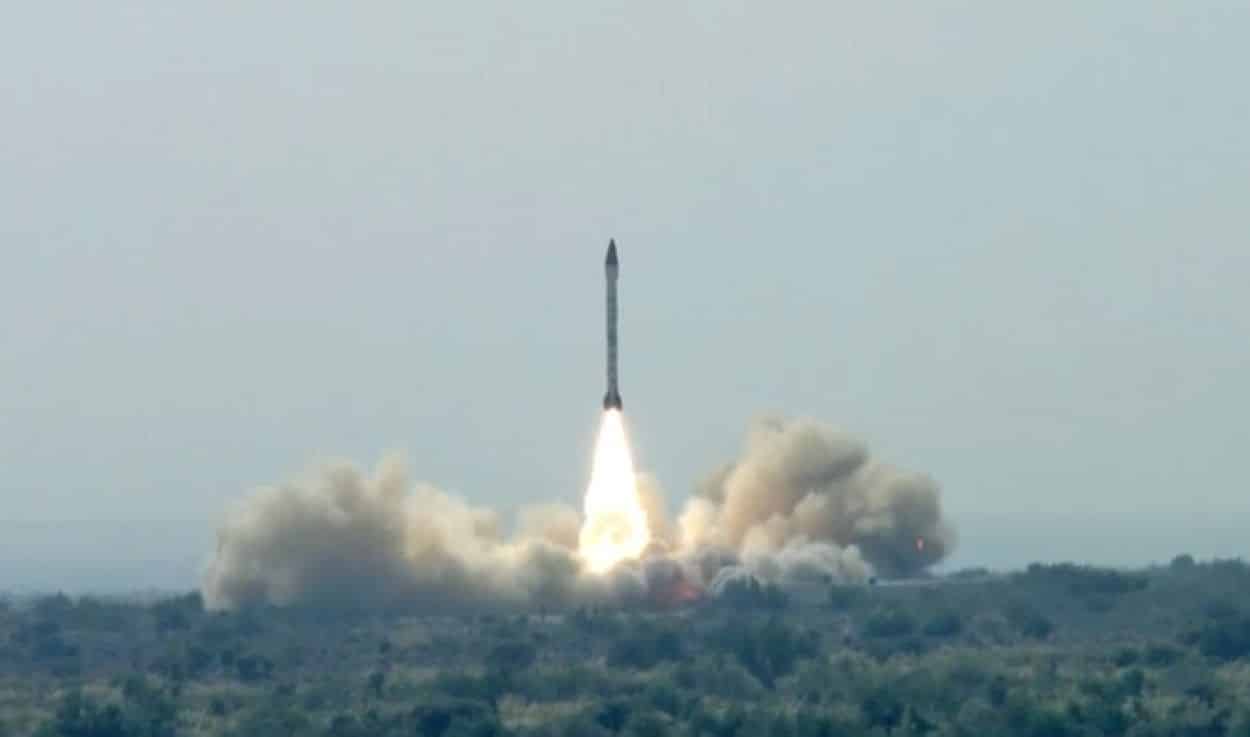Pakistan has completed a flight test of the Ababeel weapon system, as confirmed by a recent statement from the Inter-Services Public Relations (ISPR) on Wednesday. This test of the ballistic missile system was crucial in re-evaluating various design and technical parameters, confirming the performance of its sub-systems, and further reinforcing the country’s strategic stability and deterrence capabilities.
The military emphasized the significance of the Ababeel weapon system for bolstering regional stability and expressed that it epitomizes the operationalization of full-spectrum deterrence within the credible minimum deterrence strategy. Notable attendees at the launch included Chairman Joint Chiefs of Staff Committee General Sahir Shamshad Mirza, senior representatives from the Strategic Plans Division, Strategic Forces Command, and scientists and engineers from strategic institutions. General Mirza lauded the exceptional skill, dedication, and commitment demonstrated by all participants contributing to the test’s success.
Further commendations came from President Dr. Arif Alvi, interim Prime Minister Anwaarul Haq Kakar, and various service chiefs, who congratulated everyone involved with the strategic forces for this significant achievement. This development follows other notable advances in the country’s defense sector. In 2021, Pakistan marked its proficiency in indigenous weaponry with the successful test flight of the Fatah-1, a Guided Multi-Launch Rocket System with a 140-kilometre range and precise targeting capabilities.
Moreover, December 30 marked a remarkable advancement for the Pakistan Air Force as they began producing sophisticated JF-17 Thunder Block 3 fighter jets. These advanced aircraft, equipped with superior radar systems, are considered on par with India’s Raphael jets, signifying a crucial milestone in regional aerial defense.






